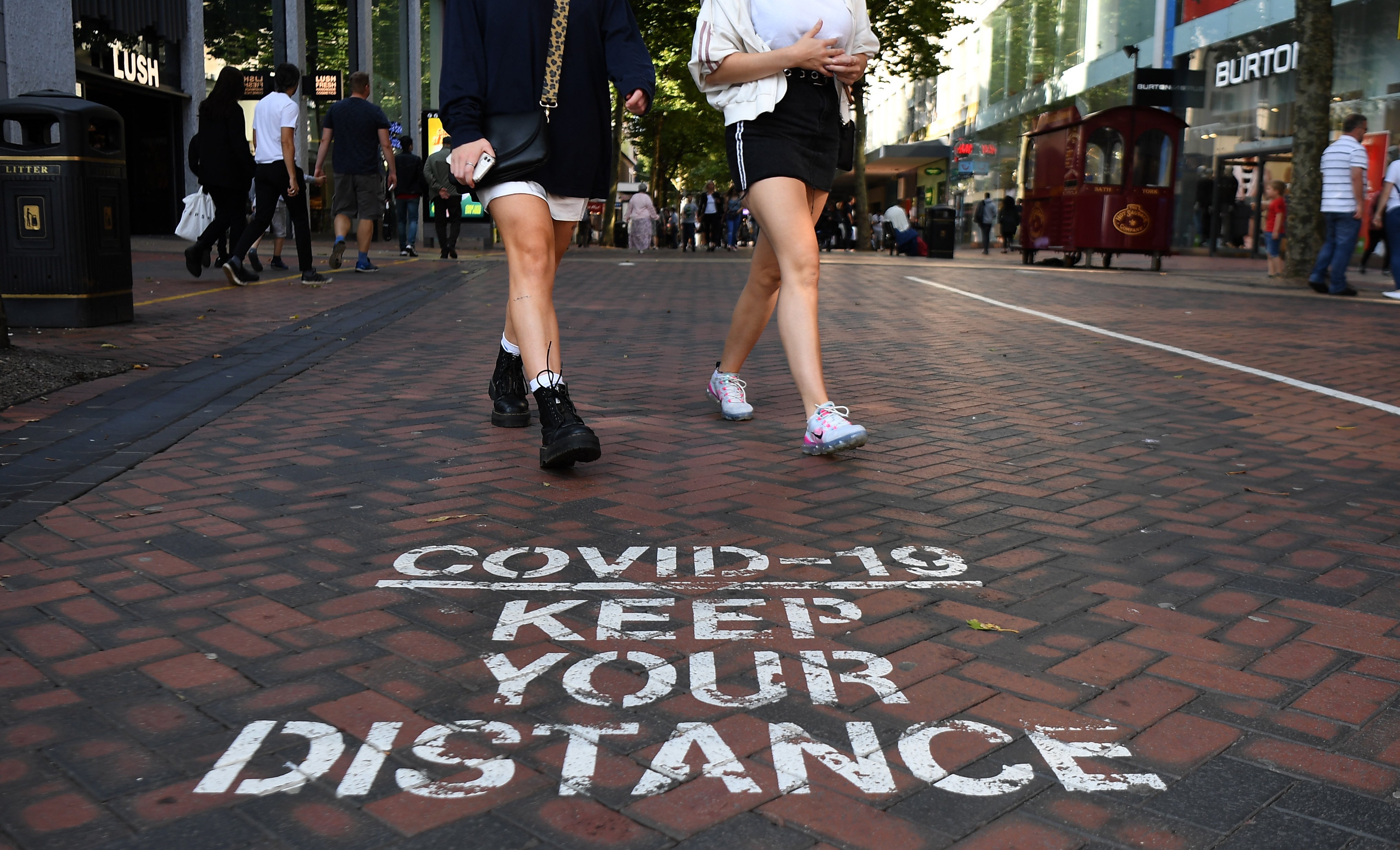Coronavirus rules: What can do you under new restrictions?
The new ‘rule of six’ has come into force — what does that mean?

Your support helps us to tell the story
From reproductive rights to climate change to Big Tech, The Independent is on the ground when the story is developing. Whether it's investigating the financials of Elon Musk's pro-Trump PAC or producing our latest documentary, 'The A Word', which shines a light on the American women fighting for reproductive rights, we know how important it is to parse out the facts from the messaging.
At such a critical moment in US history, we need reporters on the ground. Your donation allows us to keep sending journalists to speak to both sides of the story.
The Independent is trusted by Americans across the entire political spectrum. And unlike many other quality news outlets, we choose not to lock Americans out of our reporting and analysis with paywalls. We believe quality journalism should be available to everyone, paid for by those who can afford it.
Your support makes all the difference.The government has once again tightened coronavirus restrictions as it attempts to fight off a second wave of the deadly disease.
Gatherings of more than six people are now banned, regardless of whether people are meeting indoors or outdoors.
Businesses are also required to take the contact details of customers for NHS Track and Trace.
Boris Johnson said the new restrictions were necessary to avoid a second national lockdown after a spike in new infections. It comes after a top scientist warned the UK was “on the edge of losing control” of the pandemic.
What is the ‘rule of six’?
In England, the “rule of six” prevents more than six people from from multiple households from gathering at any one time. It applies to meetings both indoors and outdoors.
Pubs, restaurants and other hospitality venues all fall under the rule.
In Scotland, a maximum of six people from two households can meet. However, children aged 12 and under will not be included in the total.
In Wales, more than six people from multiple households are not allowed to meet. Children aged 11 and under are exempted from the rule. Gatherings of up to 30 people are still allowed to meet outdoors.
There are no changes in Northern Ireland.
Are any events with more than six people allowed?
The government has published a list of environments where people would be exempt from the rule in England, these include:
- if your household or support bubble is greater than six
- education and training
- work
- emergencies
- socially distanced protests
- jury duty
- childcare
- support groups
- organised sport or exercise classes
Funerals and weddings with an attendance of up to 30 people can still go ahead.
Can I still go to a place of worship?
Places of worship can still have as many people in them as is safe.
People can only attend in groups of six and they are encouraged not to mingle with other worshipers.
Can I still go to the pub?
Pubs, restaurants and shops all remain open with social distancing in place.
However, customers can only gather in groups of six from multiple households. The advice suggests there is to be no mixing between groups — even if it is someone you know.
Can I be fined for breaking the rules?
Police are allowed to fine people £100, doubling for each offence up to £3,200, for breaking the rules.
Anyone organising a house party or rave of more than 30 could face a £10,000 fine.
Boris Johnson has also warned people may be arrested if they repeatedly break the rules.
What are the new rules for businesses?
Certain businesses are required to take the contact details of customers for NHS Track and Trace from Friday.
It was optional previously.
A team of Covid marshalls has also been assembled to carry out spot checks on businesses.
What are the rules for social distancing?
In England, people are told to stay 2m apart, dropping to “1m plus” when social distancing isn’t possible. People should take extra precautions when 2m isn’t possible - such as wearing a mask.
In Scotland, the rule is 2m, though children aged 11 and under do not have to socially distance.
In Wales, people are told to exercise their discretion when 2m isn’t possible.
The rule is 2m in Northern Ireland.
Do I have to wear a face mask?
Face coverings are mandatory on public transport, and in shops, supermarkets, indoor shopping centres, banks and post offices. They are also now compulsory in cinemas, museums and places of worship.
If you have a legitimate reason not to wear one, such as a physical or mental illness, it is not necessary in law to carry evidence of your condition.
Can I travel overseas?
Holidaymakers are urged to avoid travelling to countries not on the government’s safe travel list.
Travellers returning to the UK from a country not on the list have to quarantine for 14 days in their home.
The new measures give the Border Force the power to “step up” enforcement at the border.
When can I watch the football again?
The return of sports events will be piloted with a smaller number of fans and strict social distancing.
They will not take place in areas under local lockdown.
The government plans to review the return of sport on 1 October.
What happens if I develop symptoms?
The symptoms of coronavirus are a new continuous cough, high temperature and loss of sense of taste and smell.
People who show symptoms should self-isolate for 10 days and get tested.
If the result is positive, you should continue your 10 days of self-isolation.
Anyone you live with should isolate for 14 days as soon as you start showing symptoms.



Join our commenting forum
Join thought-provoking conversations, follow other Independent readers and see their replies
0Comments